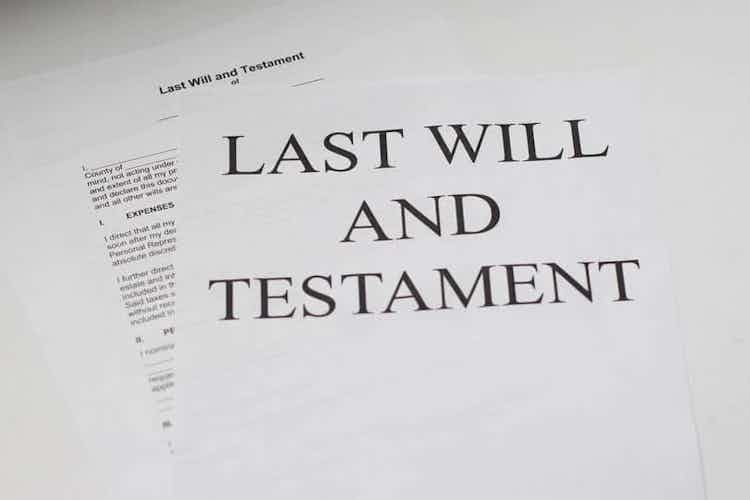Inheritance tax is, unfortunately, something that all estates in the UK will likely have to consider. It is a tax that applies to any possessions, money, or other assets left behind in a will.
For example, if you leave a lump sum of money to your next kin when you pass away, it may be subject to taxes. The British government has changed some of the rules regarding taxation over the years, meaning it’s a good idea to keep up to date.
What you may not know is that inheritance tax differs from country to country. How does this affect you as a British taxpayer? What’s more, is it likely to affect how much your estate can receive?
Some Simple Facts and Figures
First of all, let’s consider a few facts and figures which apply to UK inheritance tax in general. At the time of writing, according to Money Saving Expert, your next of kin won’t pay anything on an estate of less than £325,000 in value.
According to the same source, you can also legally avoid inheritance tax by gifting your estate to your legal spouse or a charity. Civil partners and amateur sports clubs, too, are covered by this relief. More good news is that inheritance tax does not apply above the £325,000 threshold in these scenarios.
You should be aware that there is a tax band to cover your primary residence. Money Saving Expert, again, explains that this is an additional allowance of £175,000. That means your estate can value £500,000 before your next of kin needs to worry about paying tax on top.
The UK government currently advises that an inheritance tax of 40% applies to anything falling outside of the above. However, there are some other reliefs available that may help to reduce your bill.
Which Country Has the Highest Inheritance Tax?
You’ll find that depending on where your will applies, inheritance tax will vary. According to Nomad Capitalist, Japan leads the way in terms of the highest rate at 55%. However, France and South Korea are close behind.
Figures change over time, but when the above resource was published, the UK’s inheritance fees were around 15% less than Japan’s. On the whole, US inheritance tax is at a similar level to our own 40% maximum.
What’s also interesting is that there are a few countries where this tax doesn’t apply at all. For example, your estate won’t pay a cent in Canada. Australia and New Zealand follow the same mould. In fact, according to Nomad Capitalist, Australia’s estate tax laws were established less than 40 years ago.
How Much Money Does the UK Government Get From Inheritance Tax?
The 40% rate applicable to specific estates will generate money for the government once it is valued to be worth more than £325,000. You will find this is as a result of the thresholds in place.
In practice, this could mean that an estate of £600,000 will offer a fee of £110,000 to the government. As you can imagine, this tax can result in many families looking for relief. Of course, as the value of your estate increases, the money that the government receives will, too.
How Can You Avoid Inheritance Tax In The UK?
Many estate owners in the UK will seek to make things as easy on their next of kin as possible. Instead of allowing their benefactors to pay the 40% fee, there are a few ways through which will writers can legally entrust more money to them.
As mentioned above, inheritance tax will not apply if you leave money to a spouse or civil partner. However, Money to The Masses advises that you can give assets away as gifts and not have to pay inheritance tax.
There is a caveat to this, however. For inheritance tax to not apply in this case, you will need to be alive for at least seven years after giving away your assets. Therefore, it may not be the most reliable way to relieve yourself from the tax.
MTTM also states that placing your money in a trust is a clear and legal way to avoid the tax. Therefore, this means that you can leave money to your next of kin that they can unlock when they reach a certain age.
Does Inheritance Tax Apply If I Live Or Die Abroad?
One question you might be asking yourself when reading this guide is ‘can I avoid inheritance tax if I move abroad?’. For example, many people may choose to emigrate to Australia or Canada if they wish to avoid these rates.
However, things are a little more complicated than they appear. To benefit from zero inheritance tax, you will need to relinquish your British citizenship. Experts For Expats goes into some interesting detail on this matter.
Essentially, living abroad is not enough to take advantage of the inheritance tax-free status. You will need to effectively leave the UK behind and apply for a new passport. Therefore, you will also need to cut ties with any assets, properties, or bank accounts you may have in the UK.
Changing your nationality can be a long and complicated process. In many cases, you may need to live in your new country of choice for a set amount of time before you can apply for citizenship.
What is also worth remembering is that HM Revenue and Customs will have the final say. Therefore, if you are going to bank on the expat option, make sure you carefully consider all your options.
Conclusion
Inheritance tax is something which affects millions of families each year. However, the UK’s rates are lower than in many other countries. If you are considering moving abroad to avoid these fees when you pass away, remember there are many legal ways you can lessen the strain on your kin before you travel anywhere! Consider giving gifts and keep the important thresholds in mind.






